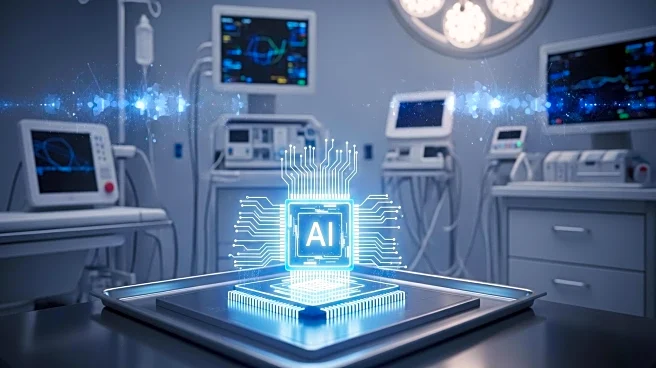What is the story about?
What's Happening?
Ashis Barad, the chief digital and technology officer at the Hospital for Special Surgery (HSS), discusses the importance of AI in addressing real-world healthcare challenges. Barad, who joined HSS a year ago, is focused on leveraging AI to expand care models beyond traditional practices. He emphasizes the potential of agentic AI, which can perform tasks without supervision, to orchestrate a comprehensive healthcare ecosystem. Barad highlights the use of AI in areas such as 3-D printing of personalized implants and gait analysis, which are integral to orthopedic care. He stresses the need for AI technologies to solve genuine problems rather than being mere technological novelties.
Why It's Important?
Barad's approach underscores the critical role of AI in transforming healthcare delivery. By focusing on practical applications, AI can enhance patient outcomes, improve operational efficiency, and reduce costs. The integration of AI in medical devices and procedures, such as personalized implants and gait analysis, represents a significant advancement in personalized medicine. Barad's emphasis on solving real problems ensures that AI investments deliver tangible benefits to patients and healthcare providers, avoiding the pitfalls of adopting technology for its own sake.
Beyond the Headlines
The discussion around AI in healthcare also raises important considerations regarding data governance, ethics, and regulatory compliance. As AI technologies become more integrated into healthcare systems, establishing robust frameworks for data management and ethical use will be essential. Barad's focus on platform solutions over point solutions highlights the need for scalable and comprehensive AI applications that can address multiple aspects of patient care and healthcare operations.
















